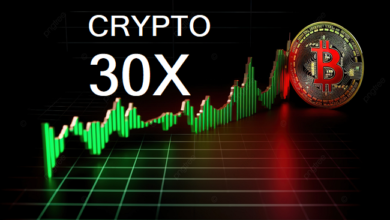What is Digital Real Estate? The Future of Investing in Virtual Land and Assets

In recent years, there has been a growing interest in what is digital real estate, a relatively new yet rapidly evolving field. Digital real estate refers to virtual assets, including domain names, websites, virtual land, and other online properties that hold intrinsic or potential value in the digital world. As the internet continues to evolve, digital real estate has emerged as a unique investment opportunity that is gaining traction among investors, entrepreneurs, and tech enthusiasts alike.
This article will explore what is digital real estate is, how it works, the different types of digital assets involved, and why it’s considered the future of investing in the digital economy. Whether you are a seasoned investor or someone new to the concept, understanding digital real estate is crucial as it paves the way for new opportunities in the virtual world.
Understanding Digital Real Estate
Digital real estate refers to any form of property that exists in the online space or virtual environments. While physical real estate is made up of tangible buildings and land, what is digital real estate involves properties that are intangible but can still be bought, sold, and traded for profit. These virtual properties can take various forms, including:
- Domain Names: Just like physical land is valuable based on location, domain names are valuable based on their memorability, relevance, and brand potential. A well-chosen domain name can be the foundation of an entire online business, and acquiring desirable domain names has been a lucrative market for many years.
- Websites: A fully functional website with a good amount of traffic can be considered what is digital real estate. Many investors buy and sell websites to capitalize on traffic, ad revenue, or a website’s potential for growth.
- Virtual Land: In virtual worlds and metaverse platforms, land in digital environments like Decentraland, The Sandbox, and others can be bought, sold, and developed. This type of virtual real estate has garnered attention as companies and individuals build virtual storefronts, entertainment spaces, and social hubs.
- Digital Products and Services: Virtual assets can also include digital goods such as NFTs (non-fungible tokens), digital art, and other types of intellectual property that can be traded on blockchain platforms.
- Metaverse Properties: A major part of the what is digital real estate boom revolves around virtual reality (VR) worlds and metaverses. These are immersive digital spaces where users interact with the environment and each other. Within these metaverses, users can buy virtual plots of land, build structures, and even host events or conduct business.
Types of what is digital real estate
1. Domain Names
Domain names are the cornerstone of the what is digital real estate world, and owning a high-quality domain name is similar to owning a prime location in physical real estate. For example, a domain name like “cars.com” is incredibly valuable due to its simplicity, relevance, and high potential for traffic.
Investing in domain names has been a profitable venture for many years. Investors buy domain names with the intent to resell them for a profit or develop them into fully functioning websites that generate income. The domain name market has become a booming industry, with premium domains fetching millions of dollars.
2. Websites
Just like physical real estate, websites can be bought, sold, and monetized. Websites with high traffic or strong SEO (search engine optimization) rankings are often valuable assets. Websites can generate revenue through advertising, affiliate marketing, selling digital products, or offering subscription-based services.
Many investors are purchasing established websites with the goal of improving their content, enhancing user experience, and increasing traffic to maximize revenue. Platforms such as Flippa allow individuals to buy and sell websites, providing an accessible entry point for aspiring what is digital real estate investors.
3. Virtual Land in the Metaverse
The metaverse is a rapidly growing sector that enables users to own and interact in virtual worlds. Virtual land within the metaverse can be developed, rented, or sold. Digital platforms such as Decentraland, The Sandbox, and Somnium Space have become popular marketplaces for virtual land.
Owners of virtual land in the metaverse can build virtual real estate, create experiences, and monetize their property through events, advertisements, and other virtual assets. In these what is digital real estate spaces, users can host social gatherings, provide services, and even run businesses—further increasing the value of their land.
4. Non-Fungible Tokens (NFTs)
NFTs are unique digital assets stored on a blockchain that represent ownership of a specific item, artwork, or property. In the context of what is digital real estate, NFTs can be used to represent ownership of virtual land, websites, or even domain names. NFT technology is revolutionizing the way assets are owned and traded in the digital realm.
NFTs can be bought and sold in virtual marketplaces like OpenSea, and their value is often determined by factors such as rarity, demand, and the reputation of the creator. As digital real estate continues to evolve, NFTs are playing a critical role in establishing ownership and facilitating transactions.
Why is Digital Real Estate Considered the Future of Investing?
The rise of the digital world and the increasing focus on virtual experiences has given digital real estate significant value. As more people spend time online, particularly in virtual environments like the metaverse, the demand for digital properties continues to grow. Here are some key reasons why what is digital real estate is seen as the future of investing:
1. The Growth of Virtual Worlds and the Metaverse
The concept of the metaverse—a fully immersive, virtual world where people can interact, socialize, and conduct business—is rapidly gaining traction. Major technology companies, including Facebook (now Meta), Microsoft, and others, are investing heavily in the development of the metaverse. Virtual spaces in these worlds are becoming valuable real estate, and early investors are reaping the rewards.
As the metaverse continues to grow, digital land and properties in these spaces will become more desirable. Businesses are already setting up virtual storefronts, hosting events, and launching marketing campaigns in virtual spaces. As a result, what is digital real estate in these virtual worlds is expected to continue appreciating in value.
2. Accessibility and Low Barriers to Entry
Unlike traditional real estate, digital real estate offers lower barriers to entry. Virtual land and domain names can be purchased for relatively low prices compared to physical properties, making it easier for investors of all budgets to participate. This accessibility makes what is digital real estate appealing to a broad range of investors—from individual enthusiasts to large companies looking to expand their digital presence.
Additionally, the ease of buying, selling, and transferring digital assets through blockchain technology ensures that the market for digital real estate is more liquid than traditional real estate. This liquidity and accessibility allow investors to more easily diversify their portfolios and engage in quick transactions.
3. Virtual Business Opportunities
With the growth of digital real estate, there are increasing opportunities for businesses to operate in the digital world. Virtual real estate can be used for a variety of purposes, including:
- Advertising and Marketing: Virtual billboards, branded experiences, and advertisements are becoming common in the metaverse and other digital environments. Businesses are purchasing virtual properties to advertise their products and services in innovative ways.
- Retail and E-Commerce: Virtual stores, marketplaces, and showrooms are thriving in the digital realm. Businesses are establishing virtual retail outlets on metaverse platforms to attract customers from around the world.
- Hosting Events and Conferences: Virtual land can be used to host events, conferences, and meetings. This trend has accelerated in recent years due to the rise of remote work and virtual conferences. Investing in digital real estate for event hosting can be highly profitable.
- Digital Services: Entrepreneurs can also provide services in virtual worlds, such as virtual real estate development, digital construction, or the creation of immersive experiences. These opportunities are opening up new revenue streams for what is digital real estate investors.
4. Diversification and Portfolio Growth
Investing in digital real estate allows investors to diversify their portfolios in ways that traditional real estate does not. Virtual properties—whether they are websites, domain names, or metaverse plots—provide new opportunities for growth, unlike anything seen in the physical real estate sector. As the digital economy continues to expand, owning digital real estate allows investors to tap into a growing market with high potential.
Moreover, digital real estate investments can be highly profitable if managed well. Domain names can be sold for a premium, websites can generate passive income, and virtual land in popular metaverse platforms can significantly appreciate in value over time.
How to Start Investing in what is digital real estate
If you’re interested in getting started with digital real estate, here are a few tips to help you begin your journey:
- Research: Take time to learn about the different types of what is digital real estate and how each works. Whether you’re interested in domain names, websites, or virtual land in the metaverse, understanding the nuances of the market is crucial.
- Invest in Domain Names: Domain names are often the what is digital real estate entry point for new investors. Look for short, memorable names with strong potential for future demand.
- Explore Metaverse Platforms: Platforms like Decentraland, The Sandbox, and Somnium Space offer opportunities to buy virtual land. Consider purchasing a small plot of land and experimenting with development or monetization strategies.
- Consider NFTs: Non-fungible tokens (NFTs) are revolutionizing digital asset ownership. Explore NFT marketplaces and consider investing in digital art or virtual land represented by NFTs.
- Start Small: As with any investment, it’s important to start small and gradually scale your investments as you gain experience. Digital real estate can be highly volatile, so ensure you’re comfortable with the risks involved.
FAQs about what is digital real estate
1. What is digital real estate? Digital real estate refers to virtual assets, including domain names, websites, virtual land, and NFTs, that exist in the digital world. These assets can be bought, sold, and developed, much like traditional real estate.
2. How can I make money from digital real estate? You can make money from what is digital real estate by buying properties (such as domain names or websites), improving them, and selling them for a profit. Additionally, virtual land in metaverse platforms can be developed and monetized through advertising, hosting events, or offering virtual goods and services.
3. What is the metaverse and why is it important in digital real estate? The metaverse is a virtual, immersive world where users can interact with digital environments and each other. It is a growing space for digital real estate, with virtual land in the metaverse offering opportunities for businesses and individuals to invest and generate income.
4. Can I buy virtual land in the metaverse? Yes, virtual land in the metaverse can be bought, sold, and developed. Popular platforms like Decentraland, The Sandbox, and Somnium Space allow users to purchase land and create virtual properties.
5. Is digital real estate a good investment? Digital real estate can be a good investment, but it comes with risks. The value of virtual properties can fluctuate, and the market is still developing. However, with careful research and strategic investments, what is digital real estate has the potential for significant returns.
You May Also Read: https://usasmartnews.com





